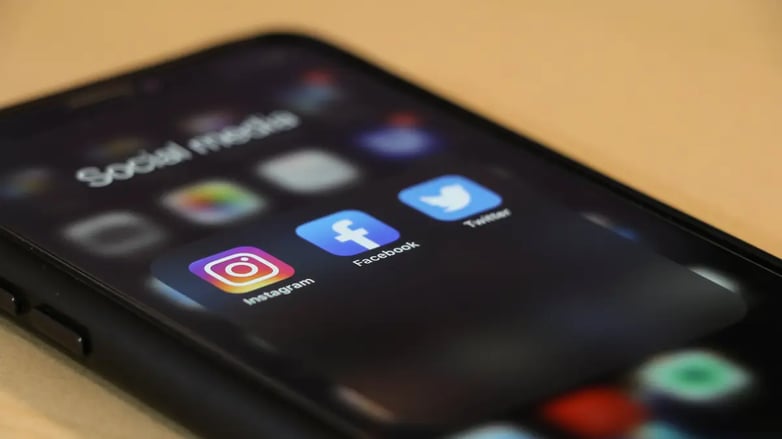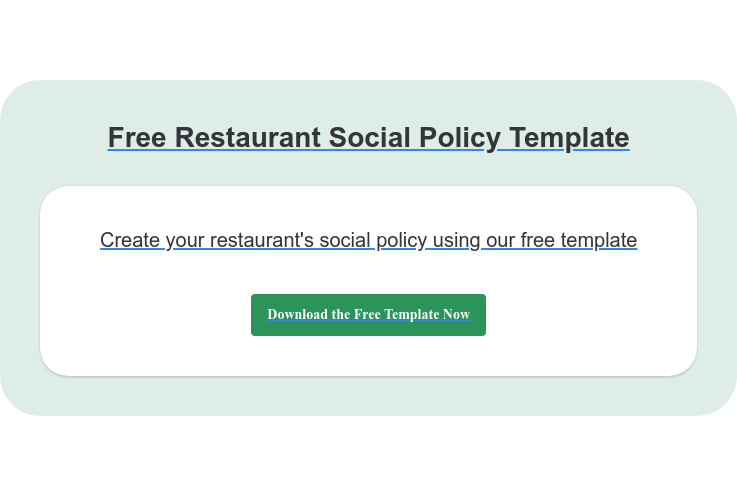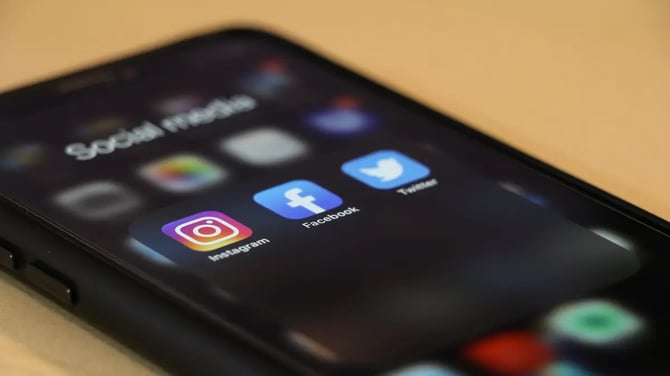Nowadays, if you try to find someone who is not on social media, there’s a fair chance that you will be looking for a long time. It’s no secret that social media has become one of the most used platforms in the world.
According to Statusbrew, the number of active social media users has passed the 4.55 billion mark. So whether or not you are an active user of social media, your employees definitely are. And they might be talking about your restaurant on there.
Social media plays a big role in representing your restaurant’s brand identity in front of your customers, and even a simple misstep can be catastrophic for your business. This is why it’s very important to regulate and manage how your brand is being presented by your employees on social media
That’s where a social media policy comes in.
What is a social media policy and why is it important?
A social media policy defines guidelines and regulations on social media use for your organization. While you cannot fully control what your employees share on social media, it’s important to set some boundaries about messaging regarding your business and brand.
These policies must apply to the entire restaurant, from the owner to the hostesses - there are no exceptions.
Following these guidelines helps provide a cohesive brand image for your restaurant across all social media platforms. But mainly, they help in avoiding consequences like a security breach, legal complications (due to breach in regulations or copyright infringements), PR issues, etc., and provide instructions for damage control in case of a crisis.

How to write a social media policy for your restaurant
If your restaurant does not have a social media policy yet, it’s time to make one. Here are a few points to include in your policy document:
PS: remember to keep it short, clear, and straightforward
1. Social media roles and responsibilities
Not everyone is qualified to handle social media. This section should clarify exactly which members of the team are responsible for managing your restaurant’s official social media accounts.
Also mention who will take up the responsibility of handling the accounts in case the appointed person is not available for any reason.
Make sure you clearly state that no one except for the authorized employees is allowed to use the restaurant’s official social media pages for any purpose.
2. Social media security
It’s important to ensure that your social accounts are fully secure at all times. For this reason, only selected members of the team must be trusted with the passwords for different accounts. Use this section to secure your social media accounts:
- Assign one employee for password keeping - this employee should be the only one who knows the password and enters login details on each device themselves
- Set up a schedule for changing passwords regularly (weekly/bi-weekly/monthly)
- List down the devices on which authorized employees can log in to the restaurant’s social media accounts (for example only work phones, not on personal phones)
3. Brand guidelines
Every restaurant has certain brand guidelines that must be followed to ensure that your business’s brand is represented in a cohesive way across social media. Use this section to list down the brand guidelines that need to be followed for messaging at all times, like:
- Brand colors
- Brand fonts
- Brand personality (serious, quirky, fun, informative)
- Imagery
You can also include a few sample social media posts to help them better understand the brand guidelines
4. Crisis response plan
Even with multiple precautions in place, there is still a possibility of something going wrong. A crisis response plan outlines the steps that should be taken for handling these situations. It should include:
- Guidelines for assessing and identifying the severity of the situation
- Contact list - who should be contacted in case of an emergency (restaurant manager, owner, social media manager, legal team)
- Plan of action to be taken in response to the situation
Having a crisis response plan in place allows restaurants to be proactive and start taking damage control measures as soon as possible. This helps control the situation quickly and reduces the stress for the one handling it.
5. Copyright regulations
Because social media is a public platform, there are various laws and regulations involved in sharing information on it. In this section, mention different copyright laws that need to be followed while posting content on socials and ensure that nothing is posted without proper permissions and licensing to avoid any legal action in the future.
6. Personal social media regulations
Your social media policy should also outline certain regulations for employees sharing restaurant-related content on their personal social media accounts. This can include guidelines regarding:
- Sharing internal restaurant processes (for example how a dish is made)
- Sharing employee status (can they reveal where they work on social media?)
- Displaying their uniform on social media
- Dealing with competitors
- Re-sharing content from the restaurant’s official social media accounts
- What restaurant content they can openly share on social media
While it’s good to mention these guidelines, try not to be too rigid with them. After all, you can only control what the employees post on their personal accounts to an extent.
7. Consequences
Policies are always put in place for a reason, and not following them can lead to consequences. Use this section to explain why your restaurant has compiled these policies (to maintain your brand image and avoid sticky situations and/or legal actions).
To further enforce the policies in the minds of your employees, clearly define the consequences of breaking social media policies on purpose - suspensions, loss of pay, and in serious cases, termination, so that employees are clear about the importance of following them.
Ready to create your restaurant’s social media policy? Download our free template to get started now!














%20(1).webp?width=200&name=Eat%20(15)%20(1).webp)

-1.png?width=1812&height=1072&name=TripAdvisor%20%26%20More%20Bookings%20(1)-1.png)
-2.png?width=1812&height=1072&name=Google%20Bookings%20(1)-2.png)

-1.jpg?width=200&name=pexels-tidos-mes-3134448-21063847%20(1)-1.jpg)
-1.png?width=200&name=TripAdvisor%20%26%20More%20Bookings%20(1)-1.png)
-2.png?width=200&name=Google%20Bookings%20(1)-2.png)
-1.png?width=200&name=Instagram%20Bookings%20(1)-1.png)
-1-png.webp?width=200&name=Facebook%20Integration%20Rectangle%20(1)-1-png.webp)







.webp?width=200&name=download%20(1).webp)
%20(1)-2.webp?width=200&name=Eat%20(34)%20(1)-2.webp)
%20(1)-2.webp?width=200&name=Eat%20(18)%20(1)-2.webp)







%20(1)-1.webp?width=314&height=175&name=Eat%20(45)%20(1)-1.webp)
%20(1).webp?width=314&height=175&name=Eat%20(53)%20(1).webp)
.webp?width=314&height=175&name=image19%20(1).webp)
%20(1).webp?width=314&height=175&name=Eat%20(29)%20(1).webp)


.webp?width=144&height=72&name=Eat%20App%20Logo%20(3).webp)